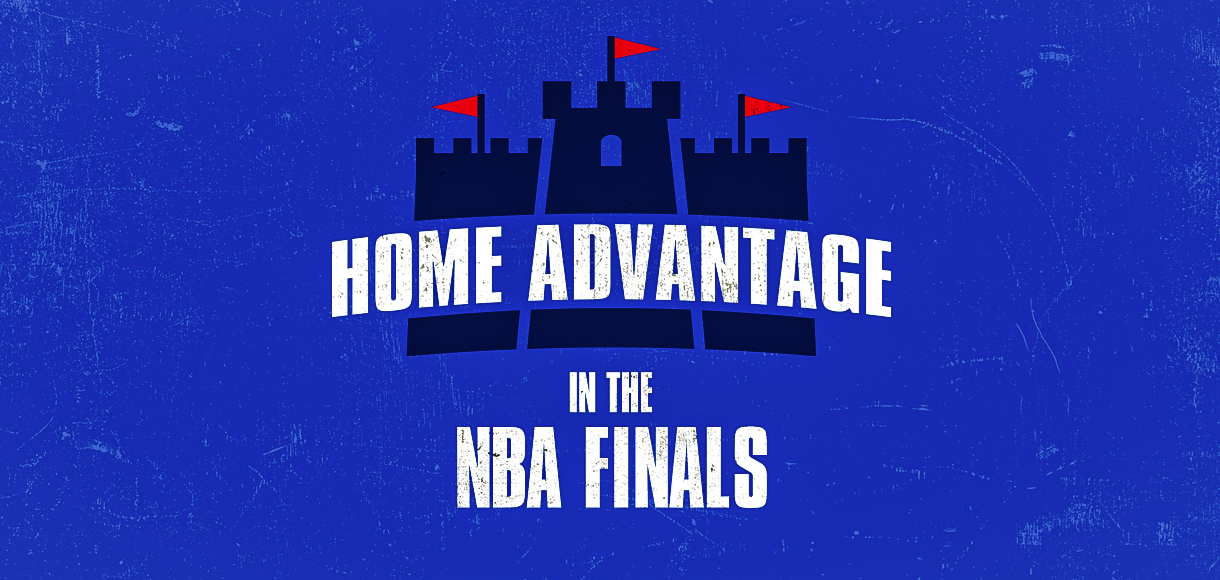How important is home advantage in the NBA Finals?

Whichever teams reach this year's NBA Finals, the most decisive factor in who will be crowned champions may already be decided.
As the NBA regular season reaches its final few games, the shenanigans begin.
With an eye on the standings and potential first-round playoff match-ups, teams may quietly – or sometimes blatantly – rest key players in the hope of securing a more favourable path to the NBA Finals.
Just last month, the Los Angeles Clippers – who are in the NBA odds to win the championship this season – left out several key starters for their final two games of the regular season, including Kawhi Leonard and Paul George.
As a result, they lost back-to-back games to teams with a combined 39-104 record, fell to the No. 4 seed in the Western Conference, and dodged a dangerous first-round playoff meeting with the defending champion Los Angeles Lakers.
The Clippers aren’t the first team to attempt this kind of chess move, but anyone doing so is taking a couple of risks.
For one, losing a series to a team you actively tried to play against would be embarrassing.
But more importantly, losing games means a worse record, and a worse record means possibly conceding home advantage in the NBA Finals.
And in the NBA Finals, home-court advantage is huge.
Of the 71 seasons in NBA history, the team with home advantage in the Finals has won the championship in 50 of them. That’s 70 per cent.
Of course, the home team is usually the superior team, hence why they have the better regular season record.
A closer look at the numbers, however, reveals the true benefit of playing in front of your own fans when the atmosphere is raucous, and the pressure is at its peak.
Over the past five years, home teams have won 57 per cent of regular season NBA games.
That number has been dragged down somewhat by the 2020-21 season, in which many arenas operated far below capacity and home-court advantage was limited, with home teams winning 54 per cent of games.
In the Finals, however, home teams have historically been more much more successful, winning games at a rate of 61 per cent.

That number has been boosted significantly by the dominance of home teams in two games in particular: Game 1 and Game 7.
In 71 years of the NBA, the home team has won the first game of the Finals 53 times (75 per cent). With fans fired up for the opening game of the series, it has been incredibly difficult for road teams to walk into their opponents’ arena and come out with a win.
The only tougher task is winning a Game 7 on the road.
The Finals have gone the full seven games on 19 occasions, with the home team triumphing 15 times (79 per cent).
Three of those road wins came in a 10-year period back in the 1960s and 1970s. The 1969 Boston Celtics beat the Los Angeles Lakers, the 1974 Celtics beat the Milwaukee Bucks, and the 1978 Washington Bullets beat the Seattle SuperSonics.
There was then a 38-year drought – during which six home teams won Game 7s – before the Cleveland Cavaliers overcame a 3-1 deficit and beat the Golden State Warriors in Game 7 on the road in 2016.
That dominance in the first and final games of the series underlines just how important home-court advantage is. With the hosts winning Game 1 and Game 7 so consistently, the team without home advantage has just two other opportunities – Game 2 and Game 5 – to snatch a win on the road.
Things were slightly different before the NBA changed the format of the Finals in 2014.
From 1950 until 1984, the Finals were structured in the same 2-2-1-1-1 format that is used today, where the team with the better record would host Games 1, 2, 5 and 7.
Between 1985 and 2013, however, a 2-3-2 format was used in order to limit cross-country travel.
The team with home-court advantage had to play three consecutive away games in this format, and had less success as a result, winning 66 per cent of Finals series compared to 71 per cent before the change.
And since the NBA reverted to the 2-2-1-1-1 format in 2014, the home team has been almost completely dominant, going 6-1.
With the 2-2-1-1-1 format in place, and all NBA arenas now back to full or close-to-full capacity, home advantage is again going to be hugely important in this year’s Finals.
Whichever teams advance, the most decisive factor in who will become the 2021 NBA champions has perhaps already been decided.






































